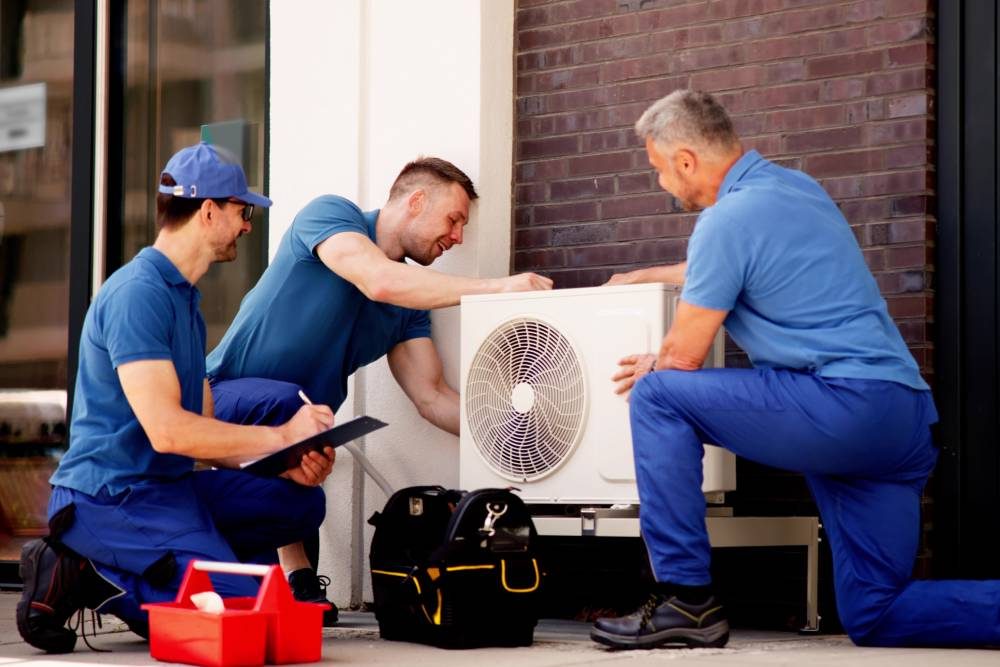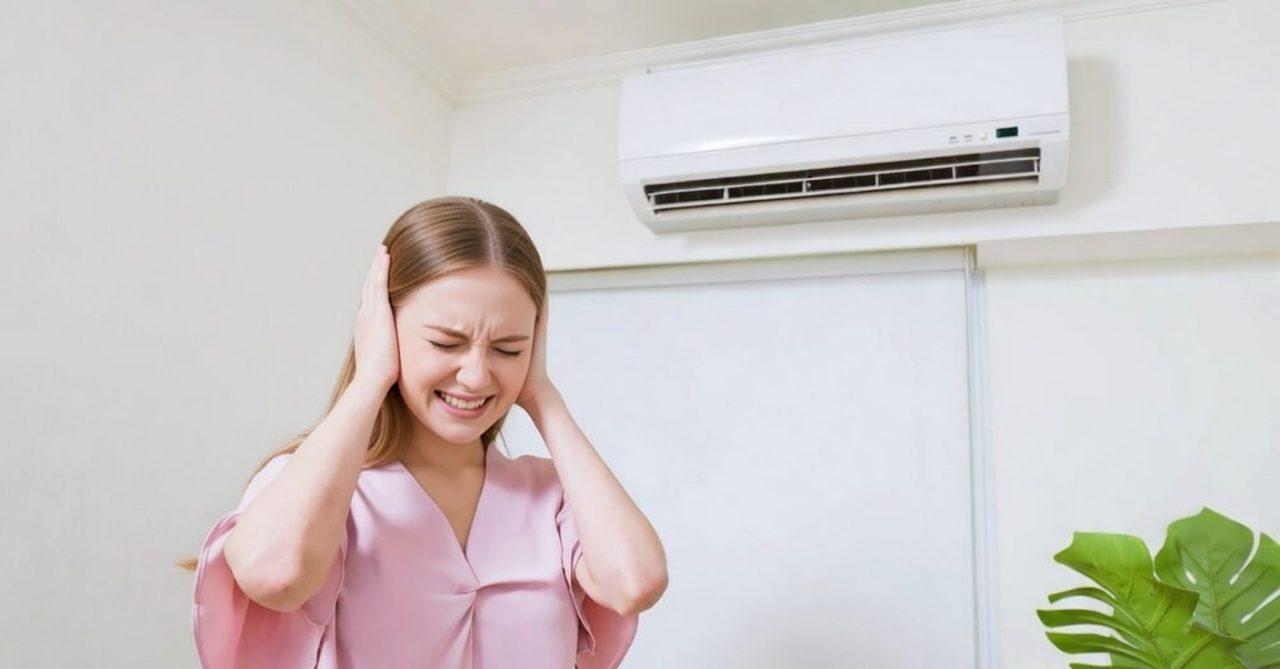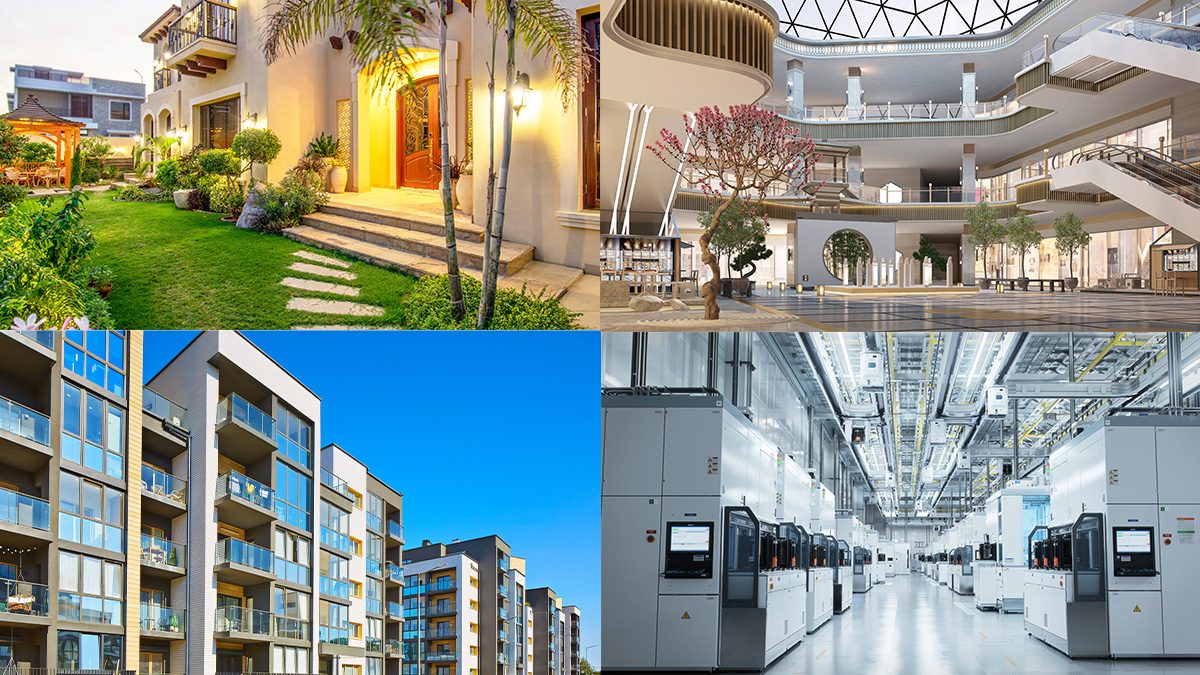
When we think of commercial air conditioners we’re talking about something designed for an office or perhaps a large retail space or even an industrial facility. So it goes without saying that choosing the right one is absolutely critical. That’s the purpose of this guide – to explore the types of commercial air conditioning systems available, the key factors to consider when selecting the right unit for your needs, as well as their many benefits.
Whether you’re in the process replacing an existing system or perhaps installing a new one, this guide will help you make the process that bit easier. So let’s jump in.
What are commercial air conditioners?
Let’s start with some definitions. Commercial air conditioning is the air ventilation and cooling fitted in commercial premises. They are designed to cool huge spaces like restaurants, malls, offices, shopping complexes, hotels, and hospitals. This list goes on.
Their primary role is to make sure the indoor environment is comfortable and safe when it comes to temperature, humidity, and air quality.
Types of commercial air conditioners: Explained
Let’s now look at the various types of commercial air conditioners to help you decide which would work best for you.
Central air conditioning: Central air conditioning offers even and uniform cooling and so is appropriate for buildings with multiple rooms and floors. Central AC units are energy efficient, easy to regulate temperatures, and can handle large cooling loads.
Ductless, mini-split air conditioner: Ductless mini-split AC systems are an ideal option for commercial establishments that have no ductwork. The systems consist of indoor units in each room or zone as well as outdoor compressors. The systems cool spaces individually with independent temperature control over various zones.
Multi-split air conditioner: Multi-split air conditions are similar to ductless mini-splits but consist of only a single outdoor compressor that works through various internal compressors.
VRV/VRF: Variable Refrigerant Flow (VRF) and Variable Refrigerant Volume (VRV) are modern and very efficient commercial air conditioning systems. VRF and VRV systems utilize refrigerant to deliver precise cooling to independent indoor units with the capability of offering simultaneous heating and cooling. VRF and VRV systems can modulate refrigerant flow based on real-time cooling loads, hence being highly energy efficient and cost-effective.
Chillers: Chillers are industrial-strength cooling systems used in large commercial and industrial facilities. They chill water or other fluids, which are used to cool the air within the building through a network of coils. Chillers are heavy-duty and can take on massive cooling loads and are perfect for cooling huge spaces and mission-critical uses like data centers and manufacturing.
Benefits of commercial air conditioners
Let’s now look at some of the main benefits of commercial air conditioners:
Efficiency: Modern commercial air conditioning systems are designed to operate with maximum efficiency, significantly reducing energy consumption. This is compared to older units which need to work harder to cool the same space, driving up your electricity costs. New models tend to have higher SEER (Seasonal Energy Efficiency Ratio) which translates into noticeable savings on utility bills.
Costs: Upgrading to a more energy-efficient AC system means lower electricity bills and fewer financial resources wasted on excessive power usage. Over time, the financial benefits of reduced energy expenditure can make a significant difference, particularly for businesses operating in regions with hot weather where cooling costs are high.
Environment: Reduced energy consumption leads to lower greenhouse gas emissions, helping businesses reduce their carbon footprint. For companies committed to eco-friendly practices, upgrading to an energy-efficient system aligns with corporate social responsibility goals and can enhance brand reputation.
Comfort: Modern AC systems provide consistent and precise temperature control, ensuring a workspace that is neither too hot nor too cold. Employees work more efficiently in a well-regulated climate, leading to increased productivity. For customer-facing businesses, a well-cooled space enhances customer satisfaction.
Maintenance: New commercial air conditioning systems are built to last, using advanced materials and technology to ensure long-lasting performance. They require less maintenance, reducing the likelihood of unexpected failures and costly downtime. With a reliable, efficient system in place, businesses can operate smoothly without the stress of recurring AC issues.
How to choose the right commercial air conditioner
When you’re making the significant investment that a commercial air conditioner will undoubtedly be, you need to ensure you’ve weighed up all the options. Below is not an exhaustive list, but will start the process of helping you think through the options. As always, speak to an expert such as Daikin who can advise you on the best tailored solution.
Your cooling requirements: Prior to choosing a commercial AC system, it’s vital to assess your requirements in terms of square footage, occupancy, and heat-producing equipment. Undersized equipment can strain to cool the area effectively, resulting in discomfort and decreased productivity, while oversized equipment could result in excess energy use. Taking future growth plans into consideration guarantees your cooling system continues to work efficiently as your business expands.
Energy efficiency: Energy efficiency is a primary consideration in maintaining low long-term operational costs. We have already mentioned SEER ratings, so look for a unit that offers more cooling with less energy usage. Buying a system with a SEER rating of 17 or higher can significantly cut down on electricity expenses, reducing your business’s carbon footprint. Consulting with an HVAC professional such as Daikin can help in determining the best SEER rating for your cooling needs.
Lifespan and maintenance: An AC system’s lifespan has a direct impact on its overall cost-effectiveness. Choosing a system with an extensive lifespan decreases replacement frequency, while picking a low-maintenance system keeps ongoing maintenance costs to a minimum. Sustained upkeep, including filter cleaning and part checks, prolongs the system’s life and helps ensure proper efficiency. And it's important to schedule check-ups with a trusted reliable HVAC service provider.
Installation and space: Installation needs to be carefully planned for the AC to run effectively. The availability of ductwork, outdoor space, and the size of the electric system determine what kind of system best suits your business. In case there is no pre-existing ductwork, a ductless system might be a more viable alternative. Outdoor unit placement must ensure proper ventilation and clearance requirements. Ensure that your building’s electrical system is compatible with the unit’s requirements.
- Customisation: New AC systems offer advanced features that enable more functionality and convenience. Smart thermostats offer remote control, while zoning capabilities allow businesses to control cooling in different zones, which increases comfort and efficiency. Other customisations, such as enhanced air filtration and humidity control, enable a healthier indoor environment. Investment in these features ensures your AC system is customised to your business’s specific cooling needs while ensuring optimum energy efficiency and overall system performance.
About Daikin
Daikin has your commercial air conditioning requirements covered. As a global innovator in air conditioning and HVAC systems, Daikin offers a complete range of systems to meet the needs of residential, commercial, and industrial clients. From packaged units and split systems to ductless mini-splits and advanced VRF (VRV) technology, Daikin products are engineered for optimal performance, energy efficiency, and comfort year-round.
Daikin leads the industry in innovation and customer support and has business in 170 countries with millions of systems installed. Learn more about Daikin’s HVAC products by contacting us today.



